- Home
- H A CULLEY
The Sacred War
The Sacred War Read online
THE SACRED WAR
Book Two of the Macedon Trilogy
By
H A Culley
Published by Orchard House Publishing
First Kindle Edition 2016
Text copyright © 2016 H A Culley
The author asserts the moral right under the Copyright, Designs and Patents Act 1988 to be identified as the author of this work.
All Rights Reserved. This book may not be reproduced in any form, in whole or in part, without written permission from the author.
Cover Image : The cover image was obtained from Google Images. All reasonable efforts have been made by the author and publisher to verify the copyright of this image but the original source is no longer available and it is believed that none exists. In the event that the publisher or the author is notified of any mistakes or omissions by the copyright owner after publication the author and publisher will endeavour to rectify the position as soon as possible.
Table of Contents
Author’s Note
Note on the Armies of Ancient Greece
Glossary
Preface
Chapter One – The Oracle at Delphi
Chapter Two – The Siege of Potidaea
Chapter Three – The Conquest of the Taulantii
Chapter Four – The Elusive Thracian
Chapter Five – The Sacred War Escalates
Chapter Six – Defeat in Thessally
Chapter Seven – The Crocus Field
Chapter Eight – King and Archon
Chapter Nine – The Siege of Olynthus
Chapter Ten – The Conquest of Chalkidike
Chapter Eleven – Intervention in Epirus
Chapter Twelve – The Gates of Fire
Chapter Thirteen – Last Throw of the Dice
Chapter Fourteen – Into Illyria Again
Chapter Fifteen – Thesprotia
Chapter Sixteen – The Conquest of Thrace
Chapter Seventeen – The Anti-Macedon Alliance
Chapter Eighteen – The Final Battle
A uthor’s Note
This is the second of a trilogy of novels charting the development of Macedon from a fractured kingdom, barely able to hold itself together, to become the dominant state in Greece. Never before had one man managed to dominate the fiercely independent Hellenistic city states and kingdoms and unite them in one cause: war with Persia.
Much has been written about Alexander the Great and his conquests, not only of the Persian Empire (modern Turkey, Iraq, Iran, Lebanon, Egypt and Syria), but of countries beyond such as Bactria (modern Afghanistan) and Northern India. Much less has been is generally known about the man who made Alexander’s conquests possible – his father, King Philip II.
He achieved this, first securing his own land from invasion and creating an army second to none in the world at that time, and then moving on to subdue the rest of Greece through conquest, threat, diplomacy and subterfuge. Throughout this time Parmenion stood at Philip’s right hand and was instrumental in many of his military victories. The second novel in the trilogy novel takes Iphitos, a fictional subordinate of Parmenion’s, as the central character and, mainly through him, tells the next part of the story – the struggle to unite most of Greece behind one leader.
This part of the trilogy covers the period 356 BC, the year that Alexander was born up to 338 BC. It tells of the struggle against Athens and the subjugation of the rest of the Greek mainland. The third book will take Alexander as the central character and cover his boyhood before moving on to the two years before Philip’s assassination. After Alexander’s struggle to secure the throne, he embarks on his journey of conquest, leaving Macedon never to return.
The Third Sacred War (356–346 BC) was fought between the Phocians and the Delphic Amphictyonic League – literally the league of neighbours - led by Thebes. The ostensible cause of the war was a large fine imposed on the Phocians by the League for cultivating sacred land. The exact nature of the offence is obscure and so I have used a more plausible cause for strife – a land dispute. The Phocians refused to pay the fine and, instead seized the Temple of Apollo in Delphi, using its treasury to fund several mercenary armies.
The Phocians suffered several major defeats but their ability to pay for fresh soldiers meant that they were able to continue the war for many years until eventually all parties were exhausted. Philip used the distraction of the other states to increase his power in northern Greece, in the process becoming ruler of Thessaly. In the end Philip's growing influence, and the exhaustion of the other states, allowed him to impose a peaceful settlement and, in the process, to establish Macedon as the dominant power in Greece. Over the next six years he consolidated this position and at the Battle of Chaeronea in 338 BC he defeated the combined armies of Athens, Thebes, Corinth, Achaea and the other southern Greek states. In the peace that followed Philip was acknowledged as the Hegemon - or military and political leader - of Greece by all states, except for Sparta, and he began to prepare for the invasion of Persia.
I have simplified the events, ignoring some and changing the chronology of others slightly, because the recorded history is too complex to include in a novel. However, I have stuck to the known facts in the main so that the reader gets a feel for the time, place and the people.
One last point. Don’t judge the Ancient Greeks by today’s standards. They lived in a different time when life was more difficult and more dangerous in many ways and a lot more basic in others.
I hope you enjoy this second book in the series.
Please leave a review on Amazon as constructive criticism is always helpful to any author.
Note on the Armies of Ancient Greece
There were three basic types of military service in Ancient Greece:
a. Professional soldiers , mainly mercenaries until the time of Philip II of Macedon, except for Sparta, whose whole society was organised on military lines. Apart from the Spartans, Philip was the first to introduce a full time professional element, other than hired mercenaries, as part of the army of a kingdom or a city state.
b. Small specialist full time units . Most cities had a city watch, which was a mixture of a police force and the nucleus of the city’s defence force. Other examples included the companions of the kings of Macedon. Until Philip’s time these were a cavalry bodyguard made up of the sons of nobles and other important men. Philip, and later his son Alexander, expanded their numbers to form an elite cavalry force and added the foot companions, an elite formation of hoplites.
c. The citizen militia . The great majority of nearly all Greek armies were made up of part-time soldiers who trained regularly but who had other occupations. They were called up, sometimes for long periods, when danger threatened.
The nomenclature of various sizes of units and their commanders varied from place to place and through time. To save confusion I have adopted the most common terminology and applied it, irrespective of the state or kingdom to which the unit belonged.
Ranks and Appointments
Senior Officers
Hegemon – Supreme leader in a political as well as a military sense, usually of a federation or an alliance.
Polemarch – Overall Commander, in the case of Macedon this was normally the king.
Strategos – General, the commander of an army under the Polemarch .
Taxiarch – Deputy commander of an army commanded by a strategos or commander of a major element of the army.
Phrourarch – Garrison commander.
Cavalry
Epihipparchos – Commander of a thousand men, termed an epihipparchia.
Hipparchos – Commander of five hundred men, termed a hipparchia.
Iliarch – Commander of two hundred and fifty men, termed an ilium.
/> Tetrachos – Commander of a troop of forty to fifty men termed a tetrachium .
Infantry
Chiliarch – Commander of a thousand men, termed a chiliarchy.
Pentakosiarch – Commander of five hundred men, termed a tagma.
Lochagos – Commander of two hundred and fifty men, termed a lochus .
Phylearch – Leader of a file, which varied in size from eight to sixteen men.
Little is known about those who provided the service elements of the armies, such as the medical corps and engineers. It seems possible that physicians, surgeons and engineers were all civilians who were drafted in as required. Those who assisted them were probably normal soldiers who were detailed to help as needed.
Glossary
AGORA – Market place and assembly area, similar to the Roman forum.
ARCHON – Literally ruler but frequently used as the title of a specific public office. In Thessaly he was the leader of the confederation of city states, commanded the Thessalian army and raised the taxes to pay for it, but he didn’t rule as such.
BASILEUS – Honorific used when addressing a monarch.
BOEOTARCH – The term used in Boeotia for a strategos who also held political as well as military power. In many ways they were similar to the consuls during the days of the Roman Republic.
CHLAMYS – A short cloak made of fine wool worn by men, especially for riding.
CHITON – A sleeved tunic worn by both men and women, usually with a belt. For women and certain men, such as priests and the elderly, the chiton was ankle length, but a knee length version was worn by the majority of men.
EPHEBE – A youth between the ages of fourteen and seventeen inclusive, especially those undergoing military training.
EXOMIS – A simple sleeveless tunic work by workers and soldiers.
GASTRAPHETETES – A large hand-held crossbow which fired an iron bolt.
HETAERA – Prostitute.
HIMATION – A type of cloak worn over a chiton. It was essentially a rectangular cloth draped over the left shoulder and about the body.
KATAPELTIKON – A mobile bolt thrower which used a torsion bow to fire a metal rod tipped with a point.
KYRIA – Honorific used when addressing a queen or a noblewoman. Nearest equivalent in English is my lady.
KYRIOS – Honorific used when addressing a man superior in rank or class. Nearest equivalents in English are my lord, master or sir.
LINOTHRAX – Body armour made of linen glued in layers with animal fat, often quilted and reinforced with metal in key areas.
LITHOBOLOS – An artillery weapon capable of throwing a stone of between 10 lb to 180 lb in weight, depending on the size of machine. Unlike later counterweighted catapults like the onagar or the trebuchet, these were torsion powered with the stone being propelled along a wooden channel by a large bow.
PAEAN - A fervent expression of joy or praise, usually in song.
PANKRATION - A sporting event introduced into the Olympic Games in 648 BC as a blend of boxing and wrestling but with scarcely any rules. The only things not acceptable were biting and gouging out the opponent's eyes.
PELTAST – A soldier armed with a throwing weapon such as a javelin. The term comes from the light round shield they carried. Also used for other missile troops such as archers and slingers.
PROPONTIS – The sea lying between the Hellespont and the Bosphorus. The modern name is the Sea of Marmara.
SARRISA – Spear or pike about sixteen feet long with a point at each end.
SKEUPHORUS – A personal slave or servant to a military officer.
Preface
Potidaea - 357 BC
The boy sped through the city streets as if Cerberus, the Hellhound of Hades, was on his heels. In a way it was. He had been betrayed to the city watch and they were using dogs to chase him. He did a sharp turn into an alley between two houses, each surrounded by a high wall. He thanked Ares, the god of war and his family’s deity, that the night was pitch black. However, the dogs didn’t need light to follow his smell. He could hear them barking excitedly and they didn’t sound as if they were that far behind him.
The alley curved to the left and then ended in a twelve foot high wall with a door in it. He knew the door would be locked but he tried it anyway. It was. He had never been so scared in all his short life. He tried to think clearly but his panic thwarted his efforts to reason logically. Even if he managed to evade the soldiers and their dogs by some miracle, the city gates were locked and there was no way out of the city until dawn. By then everyone would be on the lookout for him. He kicked the door in frustration and decided he would die fighting, rather than surrender and be executed in due course. His one regret that he wouldn’t be able to report back to Parmenion.
The boy was called Iphitos and he was fourteen and a half. He had been handed over to Philip of Macedon as a hostage with forty other boys under the terms of the peace treaty agreed between Philip and the Illyrians after their defeat at the Battle of the Erigon Valley. Iphitos had entered the Royal School of Pages and started to train as an ephebe. However, his value as a hostage ceased when his father had died suddenly earlier in the year and his elder brother, who he had never got on with, told Philip that he didn’t want Iphitos back.
As he was no longer of any use as a hostage he could have expected to be killed or sold into slavery. It was his good fortune that he, along with other pages over time, had caught the roving eye of King Philip. He hadn’t yet been one of Philip’s occasional bed companions at the time of his father’s death, for which he’d been thankful, but Philip’s had liked what he saw. He had decided to spare him and sent him to serve Parmenion, the Macedonian strategos, as his skeuphorus instead.
It was better than being sold into slavery but a skeuphorus was still a servant, albeit one who served a senior military officer and led a better life than most servants. He was surprised to find that the strategos’ aide was another Illyrian, a fifteen year old boy called Kleandros; he was even more surprised to find out that he had been Parmenion’s skeuphorus before becoming his aide. It was a unique promotion and Iphitos rightly assumed that it must have been controversial at the time.
However, when he reported to Parmenion he was told that the strategos had already found a middle-aged Athenian slave to replace Kleandros as his skeuphorus. Consequently Parmenion was at something of a loss to know what to do with the boy.
For a while he shadowed Kleandros and, as they were both Illyrians, they got on well together. Then Parmenion found a use for Iphitos. He needed someone who wasn’t either Macedonian or Chalkidikean to find out as much as he could about the defences of Potidaea.
The city controlled the land access to Pallene , one of the three peninsulars that stuck out into the Aegean Sea. Philip had agreed to capture it and hand it over to the Chalkidikeans in exchange for an alliance with them.
Iphitos had posed as an escaped Illyrian prisoner and had obtained work as a kitchen boy. One of his jobs was to collect purchases from the agora and bring them back to the house. He used the time to study the walls and the layout of the city as well, as noting the sentry pattern and the interior defences for the four gates.
Unfortunately, one of the other servants had found the small scroll on which Iphitos had written his notes in code whilst he was rifling through the boy’s possessions to see if there was anything worth stealing. The man couldn’t read but he knew what the sketches of the fortifications meant. He took them to his master in the hope of a reward. The man had made the mistake of taking the scroll to confront Iphitos and arrest the boy himself with the help of the servant. They had grabbed him whilst he slept and held him down whilst the servant tried to tie his hands together.
The boy still had his legs free and he brought one knee up into the crotch of his master. The man yelped in agony and let go. Iphitos grabbed the dagger that he always kept handy with his free hand and jabbed it into the servant’s side. The man screamed and fell to the floor. Iphitos then q
uickly slit the throats of both men before grabbing the small scroll containing his notes and he ran from the house as fast as his legs would carry him. He just wanted to escape without thinking too much about where he was going.
The other servants who slept in the same room huddled terrified in a corner, all except one who slipped out to inform the city watch. The Illyrian had a ten minute start by the time that the soldiers arrived, but they were joined by two dog handlers five minutes later. Iphitos had left his spare exomis in his haste to escape and so, a quarter of an hour after he had fled, the dogs picked up his scent and the hunt started.
Chapter One – The Oracle at Delphi
356 BC
Philip of Macedon pulled on the reins to halt his horse when the oracle complex came into view. Sitting on the flat top of a tall hill above the Mediterranean Sea, it featured the Pythian stadium with seating for ten thousand spectators, several treasuries - including those of Athens, Thebes and Corinth - an amphitheatre and the Temple of Apollo, the slayer of Python, the serpent who had originally guarded the oracle.
Apollo spoke through the priestess of the oracle, known as the Pythia in memory of Python. She was always an elderly woman of blameless life chosen from among the peasants of the area. She sat on a three-legged stool over an opening in the earth known as the chasm. When Apollo slew Python, the body fell into this fissure, according to legend, and fumes arose from the decomposing body.
Intoxicated by the vapours, the Pythia would fall into a trance, allowing Apollo to possess her spirit. In this state she made her prophesies. Philip had heard rumours that, in fact, the Pythia used oleander to induce her trances, chewing its leaves and inhaling its smoke. The toxic substances given off by the plant produced symptoms similar to those of epilepsy, known throughout Greece as the sacred disease in consequence.

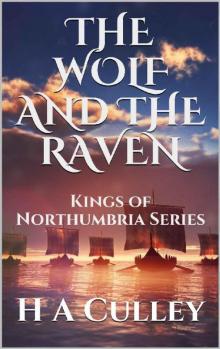 The Wolf and the Raven
The Wolf and the Raven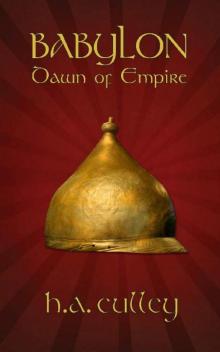 Dawn of Empire
Dawn of Empire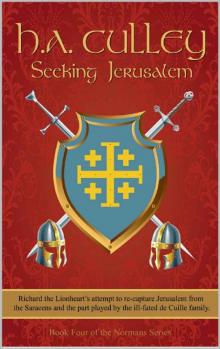 Seeking Jerusalem
Seeking Jerusalem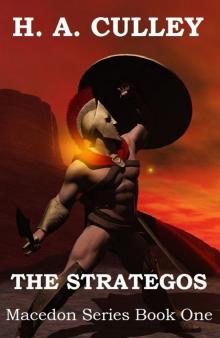 The Strategos
The Strategos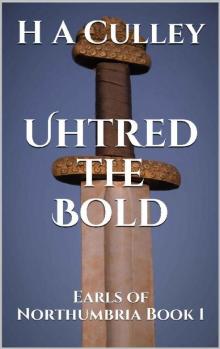 Uhtred the Bold
Uhtred the Bold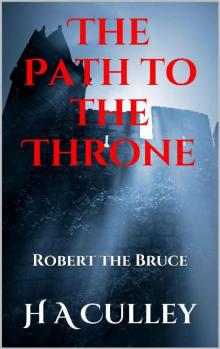 The Path to the Throne
The Path to the Throne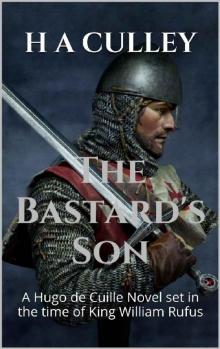 The Bastard's Son
The Bastard's Son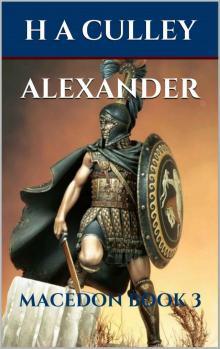 Alexander
Alexander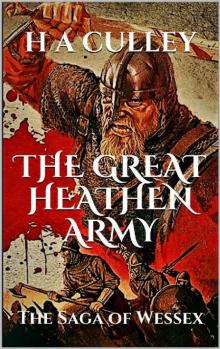 The Great Heathen Army
The Great Heathen Army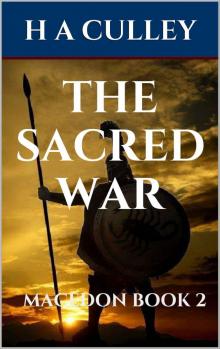 The Sacred War
The Sacred War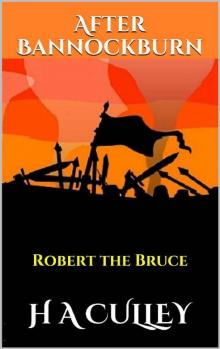 After Bannockburn
After Bannockburn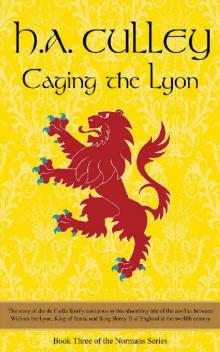 Caging the Lyon
Caging the Lyon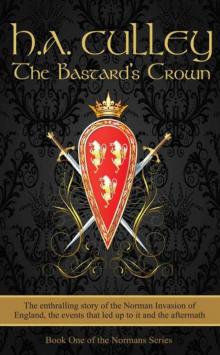 The Bastard's Crown
The Bastard's Crown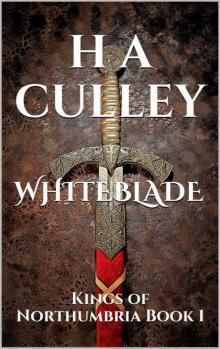 WHITEBLADE
WHITEBLADE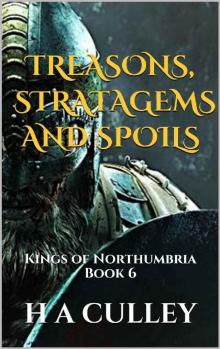 TREASONS, STRATAGEMS AND SPOILS: Kings of Northumbria Book 6
TREASONS, STRATAGEMS AND SPOILS: Kings of Northumbria Book 6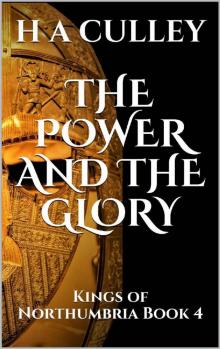 THE POWER AND THE GLORY: Kings of Northumbria Book 4
THE POWER AND THE GLORY: Kings of Northumbria Book 4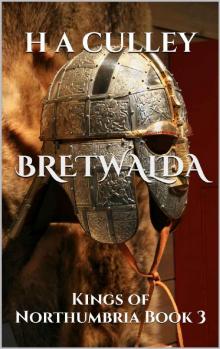 BRETWALDA: Kings of Northumbria Book 3
BRETWALDA: Kings of Northumbria Book 3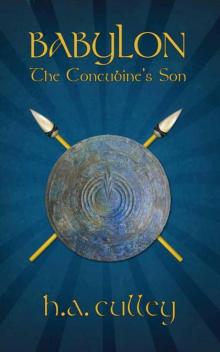 The Concubine's Son
The Concubine's Son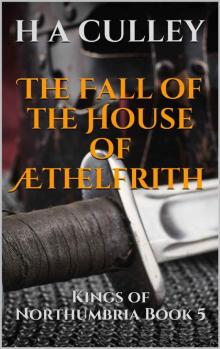 The Fall of the House of Æthelfrith: Kings of Northumbria Book 5
The Fall of the House of Æthelfrith: Kings of Northumbria Book 5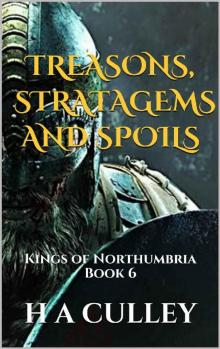 TREASONS, STRATAGEMS AND SPOILS
TREASONS, STRATAGEMS AND SPOILS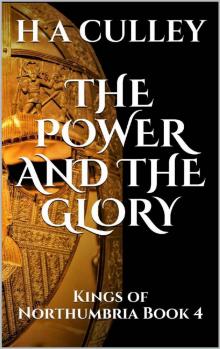 THE POWER AND THE GLORY
THE POWER AND THE GLORY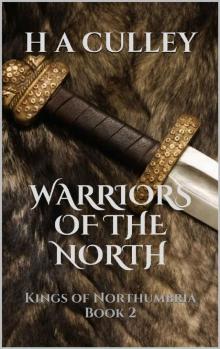 WARRIORS OF THE NORTH
WARRIORS OF THE NORTH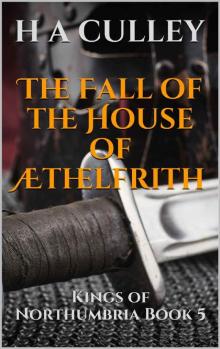 The Fall of the House of Æthelfrith
The Fall of the House of Æthelfrith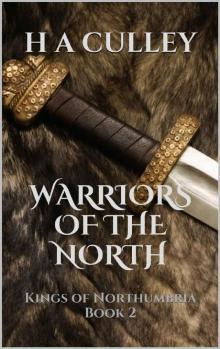 WARRIORS OF THE NORTH: Kings of Northumbria Book 2
WARRIORS OF THE NORTH: Kings of Northumbria Book 2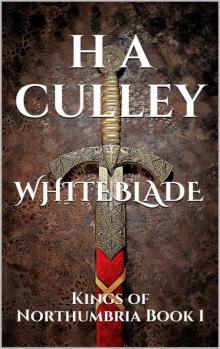 WHITEBLADE: Kings of Northumbria Book 1
WHITEBLADE: Kings of Northumbria Book 1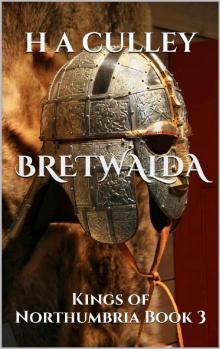 BRETWALDA
BRETWALDA